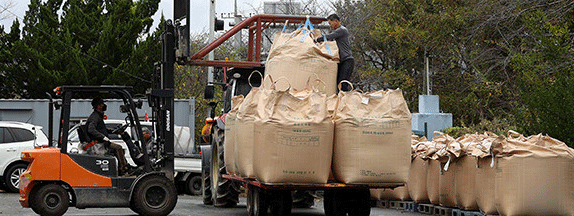The agricultural sector of Gangjin County is abuzz with activity as the premium quality rice oats, celebrated as the best in South Korea, enter full-scale procurement. The favorable climate of Gangjin, ideal for cultivating the cold-sensitive rice oat, has played a pivotal role in establishing the county as a frontrunner in both quality and cultivation area since 2008. This year, approximately 420 local farms have contracted to harvest rice oats over an area of about 1,340 hectares.
These rice oats are being procured through local agricultural cooperatives and Dubo Foods Co., Ltd. The procurement prices for 40 kg are set at 86,000 KRW for Grade 1 and 81,000 KRW for Grade 2 by the cooperatives, with Dubo Foods offering slightly higher at 86,000 KRW for Grade 1 and 82,000 KRW for Grade 2. This marks an approximate 7.5% increase compared to last year.
Despite the promising start, the cultivation faced challenges. Frequent rains during the sowing period led to excessive moisture damage and lodging, while continuous rainfall during the ripening phase resulted in reduced ripening rates, cutting yields by over 50%. In response, Gangjin County has registered rice oats as a new item in the crop disaster insurance scheme for the first time in 2023, and the insurance payout is projected to be around 747 million KRW due to the yield losses from this year’s disasters.
Furthermore, government disaster relief funds have been allocated to support affected farmers. The February rain damage relief amounted to 557 million KRW for 344 farms over 694 hectares, while the May rain damage relief provided 424 million KRW for 358 farms covering 533 hectares, contributing to income stability for rice oat farmers.
Gangjin County has also undertaken several initiatives to support high-quality rice oat cultivation. Over 97 million KRW was invested in 2022 and 2023 to provide row seeders to prevent dense planting, and an additional 80 million KRW was allocated this year for fertilizers to prevent lodging.
Gangjin County Mayor Kang Jinwon emphasized, “It is fortunate that our persistent advocacy has led to the inclusion of rice oats in the crop disaster insurance, allowing farmers to benefit. Crop disaster insurance is no longer optional but essential for maintaining secure farm incomes, and I urge all farmers to participate.”
To ensure the crop disaster insurance is effective, Gangjin County is working with Jeollanam-do to address discrepancies between the standard and actual harvest yields for rice oats. They are advocating for insurance policy revisions to improve yield estimations and reduce farmers’ out-of-pocket costs.
The commencement of rice oat procurement in Gangjin underscores the county’s dedication to agricultural excellence and resilience. Despite facing climatic challenges, the support through crop disaster insurance and government relief has provided a safety net for farmers. Gangjin’s proactive measures in advancing cultivation techniques and advocating for better insurance policies exemplify a robust agricultural strategy that other regions can model.
Error




